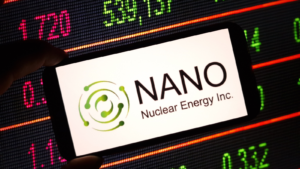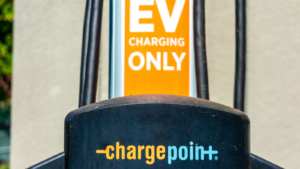
Amazon (NASDAQ:AMZN) is a growth machine today, bringing in a jaw-dropping $266 billion in annual sales to produce over $30 billion in net profits. Yet for the first decade of its existence, it generated losses every year.
Founded in 1994 and publicly traded since 1997, Amazon recorded significant losses all the way up until 2003 when it made its first annual profit of $35 million.
Today, loss-generating companies will point to Amazon’s example to explain away their own consistent losses. Few of them, however, will ever really emulate the e-commerce giant. Yet not all will produce losses in perpetuity. The three companies below are actually unprofitable stocks to buy today.
Although they are hemorrhaging red ink now, investors can look to a future when they will be profit-making businesses. It might not be on the same grand scale as Amazon but they have a bright future still.
Archer Aviation (ACHR)

Electrical vertical takeoff and landing (eVTOL) aircraft manufacturer Archer Aviation (NYSE:ACHR) is one of a handful of unprofitable stocks to buy. While it will likely produce losses for the foreseeable future, Archer is helping to create a whole new industry from the ground up.
Short haul electric airtaxi services could be a significant growth business in the future and the eVTOL leader will be in the forefront of its development. The EVTOL stock is on track to launch commercial operations next year once it secures Federal Aviation Administration certification, which appears likely.
Last month Archer’s Midnight aircraft achieved its first transition flight. That is when an aircraft takes off vertically like a helicopter, accelerates forward when its propellers tilt forward to propel it ahead like an airplane and then land vertically again like a helicopter. The craft achieved speeds of over 100 mph.
As the Midnight aircraft is large enough to carry six passengers, this could be a fast-growing business for taxiing passengers from airports. Archer just signed a memorandum of understanding (MOU) with Signature Aviation, which operates the world’s largest network of private terminals. The MOU envisions Archer operating an air taxi service at key United Airlines (NASDAQ:UAL) hubs at Newark International and Chicago O’Hare Airports from day one. United is also a financial backer of Archer with a conditional purchase agreement to buy up to $1 billion worth of its eVTOL aircraft.
NANO Nuclear Energy (NNE)

NANO Nuclear Energy (NASDAQ:NNE) only went public in May but there is a unique opportunity for it to rapidly grow its microreactors into a world-class operation.
It is quickly becoming apparent that an all-of-the-above option is needed to meet this country’s energy demands. Beyond just fossil fuels, renewable energy sources will be key to meeting the demands being placed on the electric grid.
While electric vehicles (EV) will place a large load on capacity, data centers are emerging as a critical drain as well. Artificial intelligence proving to be a critical source of energy consumption. Nuclear energy is one facet of meeting those needs and NANO’s recently acquired technology could help fill in an important piece of the puzzle.
My colleague Josh Enomoto recently described how NANO Nuclear’s just-acquired novel nuclear reactor cooling technology “may revolutionize the cooling and heat transfer process.” The annular linear induction pump (ALIP) “allows pumping of electrically conducting liquids without moving parts,” according to NANO. The technology can improve a reactor’s reliability while reducing maintenance needs.
As one of the unprofitable stocks to buy, NANO faces a number of big challenges. While their small size, simple plant layout and fast installation make them preferable to large-scale reactors, fuel availability, security and licensing are high hurdles still to get over.
In particular, the microreactor company expects its demonstration projects to be completed over the next two years. That will be followed by a potential five-year licensing process. It means NANO will be producing losses for many years yet. But if successful, it should be able to turn those losses into profits.
ChargePoint Holdings (CHPT)

Probably the best-known of the unprofitable stocks to buy is ChargePoint Holdings (NASDAQ:CHPT), the operator of a network of EV charging stations. Founded in 2007 and publicly traded since 2021, ChargePoint has yet to find the magic elixir to generate profits. That could be changing.
The EV charging stock is transitioning away from its hardware and more towards becoming a software provider. As EV demand fades, hardware sales are falling. ChargePoint is the industry leader with a 50% share but revenue of $107 million was down 18% in the first quarter. That was caused by its networked charging systems sales plummeting 34% year-over-year.
That hardware, though, comes with required network software attached to it. It is, in fact, unique amongst providers in having this closed-loop system. It also operates an asset-lite model where it doesn’t own the charging stations, which helps its bottom line.
Moreover, because the software is attached, customers become tied to ChargePoint. They would have to replace the hardware as well if they wanted a different provider. That makes CHPT’s business very sticky. Moving forward, though, ChargePoint wants to pivot to being more software-oriented.
Earlier this year it partnered with AcBel for co-designing ChargePoint’s hardware. It will allow the charging company to separate hardware and software for customers wanting different providers. That opens new growth opportunities. It would also lower ChargePoint’s costs, which is key for an unprofitable stock to buy. The transition would allow it to eventually produce those profits it desperately needs to continue growing.
On the date of publication, Rich Duprey did not hold (either directly or indirectly) any positions in the securities mentioned in this article. The opinions expressed in this article are those of the writer, subject to the InvestorPlace.com Publishing Guidelines.
On the date of publication, the responsible editor did not have (either directly or
indirectly) any positions in the securities mentioned in this article.






